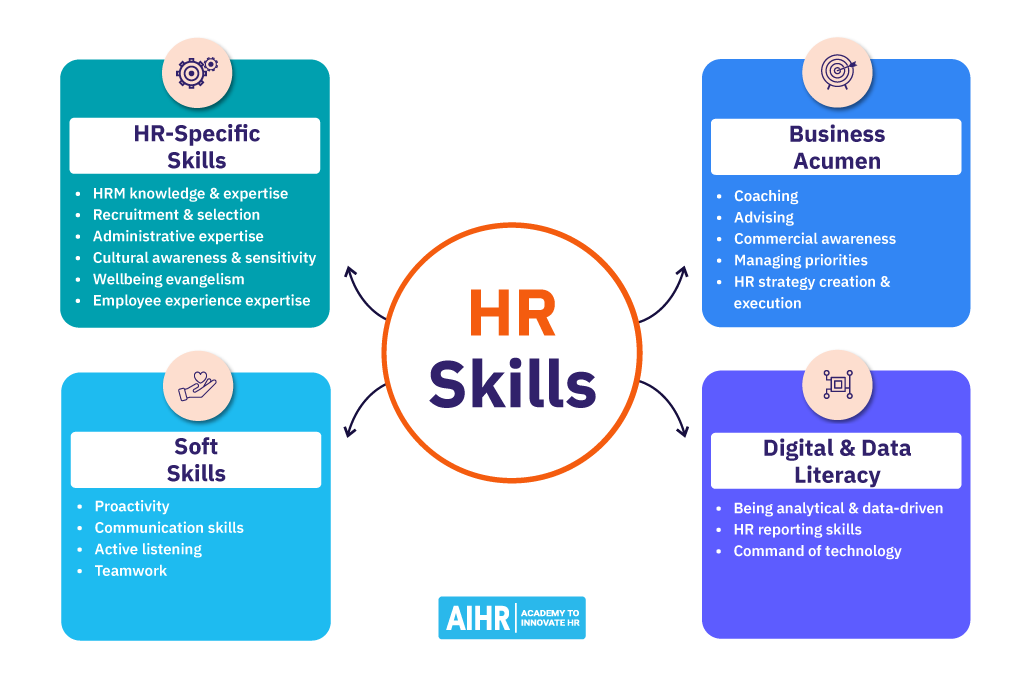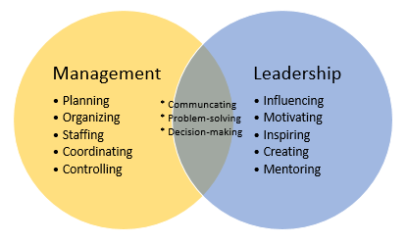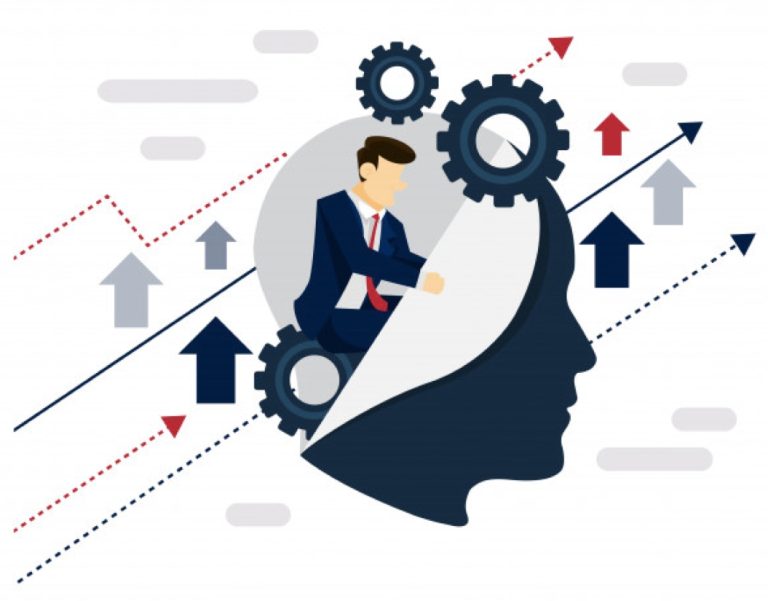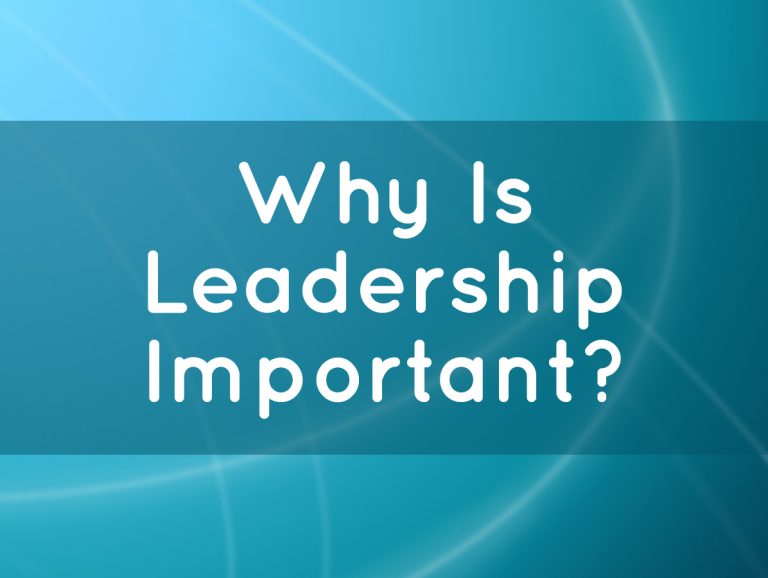What Leadership Skills are Essential for Human Resources?
Leadership skills such as communication, adaptability, problem-solving, and strategic thinking are essential for human resources. Effective human resources leadership requires strong communication skills to effectively convey information and resolve conflicts.
Additionally, adaptability is crucial to navigate the ever-changing business landscape and respond to evolving employee needs. Problem-solving skills enable HR leaders to identify and address workplace issues promptly and effectively. Finally, strategic thinking is a vital leadership skill that helps HR professionals align HR initiatives with overall organizational goals and drive positive change.
By possessing these essential leadership skills, human resources professionals can effectively meet the diverse needs of employees while contributing to the organization’s growth and success.
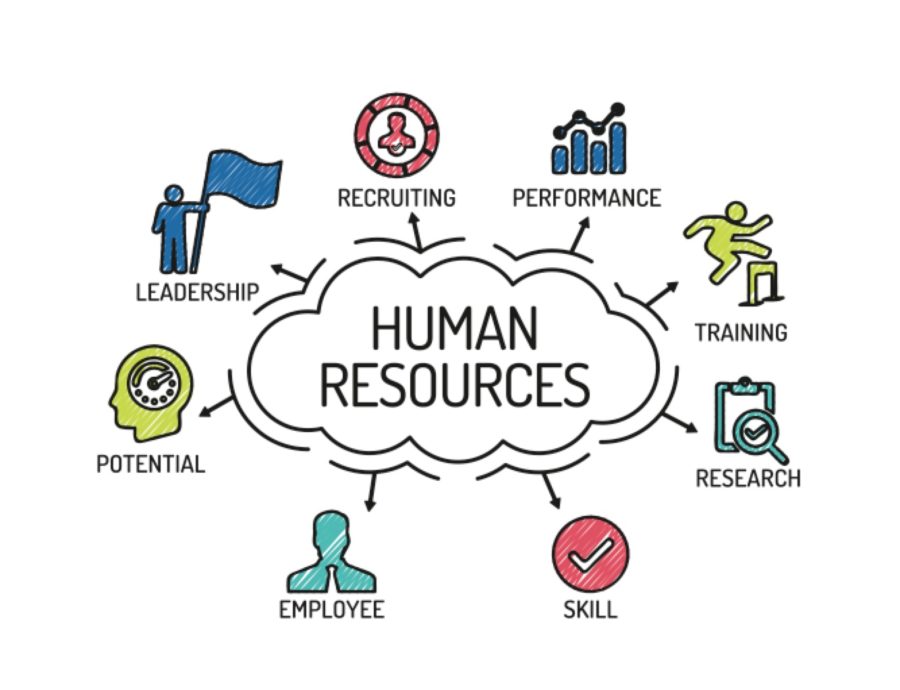
Credit: www.enrole.com
1. Communication Skills
Effective communication skills are essential for human resources professionals. They need to be able to clearly articulate ideas, actively listen, and collaborate with others to ensure effective teamwork and resolution of conflicts. Being able to communicate effectively helps HR leaders build trust and credibility with employees and stakeholders.
Effective communication is at the core of successful leadership in human resources. As an HR leader, you need to be able to communicate with clarity and confidence, ensuring that your message resonates with your team and stakeholders. There are two key components to communication skills that you must master: verbal communication and written communication.1.1 Verbal Communication
Verbal communication involves the use of spoken words to convey ideas, information, and instructions. The way you express yourself verbally can have a significant impact on how well your messages are understood and received. Here are some key aspects of verbal communication that are essential for HR leaders: – Clarity: When communicating verbally, it’s important to be clear and concise in your delivery. Use simple and straightforward language, avoiding jargon or technical terms that might confuse your audience. Keep your sentences short and to the point, ensuring that each word adds value to your message. – Active Listening: Effective verbal communication is not just about speaking; it also involves actively listening to others. Actively listening means paying full attention to the speaker, showing empathy, and seeking clarification when needed. This skill allows you to understand others’ perspectives and address their concerns effectively. – Non-Verbal Communication: Non-verbal cues, such as facial expressions, body language, and tone of voice, play a crucial role in conveying your message. Maintain eye contact, use appropriate gestures, and speak with a confident and assertive tone to reinforce your words. Projecting a positive and approachable demeanor can help build trust and rapport with your team.1.2 Written Communication
In addition to verbal communication, strong written communication skills are vital for HR leaders. Written communication includes emails, reports, policies, and other written documents that convey important information to employees and other stakeholders. Here are some key elements of effective written communication: – Clarity and Conciseness: When writing, aim for clarity and conciseness. Use simple language and avoid unnecessary jargon or technical terms. Structure your sentences and paragraphs in a logical manner, ensuring that your message is easy to understand and digest. – Grammar and Spelling: Pay attention to your grammar and spelling. Errors in your writing can detract from your credibility and professionalism. Proofread your work carefully, using tools like spell checkers to catch any mistakes. – Organization: Ensure that your written communication is well-organized and easy to follow. Use headings, bullet points, and numbered lists to break down complex information and present it in a clear and structured way. This helps the reader quickly grasp the main points and key takeaways. By honing your communication skills, both verbal and written, you can enhance your effectiveness as a leader in human resources. Keep in mind that communication is a continuous process, and it’s important to constantly refine and improve your skills to meet the evolving needs of your team and organization.
Credit: www.testgorilla.com
2. Emotional Intelligence
Emotional intelligence is essential for effective leadership in human resources, allowing leaders to understand and manage their own emotions while also empathizing with and influencing the emotions of others. Having this skill helps HR professionals build strong relationships, resolve conflicts, and make strategic decisions that positively impact the organization’s success.
Emotional intelligence is a crucial leadership skill for human resources (HR) professionals. It refers to the ability to understand and manage emotions effectively, both in oneself and in others. The role of HR involves managing and supporting employees in various aspects, and having strong emotional intelligence enables HR leaders to navigate complex interpersonal dynamics with sensitivity and empathy.
2.1 Self-awareness
Self-awareness is an essential component of emotional intelligence for HR leaders. It involves having a deep understanding of one’s own emotions, strengths, weaknesses, and values. By being self-aware, HR professionals can effectively manage their own emotions, make sound decisions, and act authentically in their interactions with others.
2.2 Empathy
Empathy is another critical aspect of emotional intelligence for HR leaders. It is the ability to understand and share the feelings of others, putting oneself in their shoes and genuinely connecting with their experiences. Empathetic HR leaders can build trust and rapport with employees, creating a supportive and inclusive work environment.
Through empathy, HR professionals can effectively address employee concerns, resolve conflicts, and provide appropriate support and guidance. By understanding the needs and emotions of employees, empathetic HR leaders can implement strategies and policies that foster employee well-being and engagement.
In summary, emotional intelligence, including self-awareness and empathy, is essential for HR leaders to effectively manage and support their employees. By cultivating these skills, HR professionals can create a positive workplace culture, strengthen employee relationships, and contribute to the overall success of the organization.
3. Conflict Resolution
Conflict resolution is a crucial leadership skill for human resources, ensuring harmonious work environments and effective problem-solving. Great leaders in HR possess strong communication, empathy, and negotiation abilities to mediate disputes and foster collaboration among employees.
Conflict is inevitable in any workplace, and as an HR leader, it is crucial to possess strong conflict resolution skills. This involves the ability to mediate and find solutions to problems that arise amongst employees or between employees and management.3.1 Mediation
One essential skill for HR professionals when it comes to conflict resolution is mediation. Mediation involves acting as a neutral third party to facilitate communication and negotiate a resolution between conflicting parties. In this role, an HR leader must remain impartial and objective, helping to create an environment of trust and understanding.3.2 Problem-solving
Problem-solving is another critical skill required for effective conflict resolution. This involves the ability to identify the root cause of a conflict and develop practical solutions that address the underlying issues. An HR leader must be able to analyze the situation, gather information, and collaborate with all parties involved to find the best possible resolution.Some strategies that can help in conflict resolution:
• Active listening: Taking the time to listen to both sides of the conflict can help understand the perspectives and concerns of each party. • Communication skills: Clear and effective communication is essential for conveying ideas, managing expectations, and facilitating compromises. • Creativity: Thinking outside the box and exploring alternative solutions can help find win-win outcomes that satisfy all parties involved. • Emotional intelligence: Understanding and managing emotions is crucial in conflict resolution, as it allows for empathy, de-escalation of tensions, and the ability to respond thoughtfully. • Flexibility: Being open to different perspectives and adapting strategies as needed is important in finding resolutions that work for everyone. By honing these conflict resolution skills, HR professionals can foster a positive and productive work environment where conflicts are effectively managed and resolved. This not only strengthens relationships amongst team members but also contributes to the overall success of the organization.4. Adaptability
When it comes to thriving in today’s rapidly changing business environment, adaptability is key. In the field of Human Resources (HR), leaders need to be able to adjust and navigate through various challenges and uncertainties. A vital aspect of adaptability in HR lies in two crucial sub-skills: flexibility and resilience.
4.1 Flexibility
In the context of HR leadership, flexibility refers to the ability to embrace change and adjust strategies and approaches accordingly. A flexible HR leader understands that the needs of the workforce are ever-evolving and that agility is crucial for success. This adaptability mindset enables them to stay ahead of the curve and respond effectively to changing trends, technologies, and employee expectations.
In the fast-paced world of HR, flexibility is essential for:
- Adapting HR policies and practices to align with evolving laws and regulations
- Embracing emerging technologies to streamline HR operations
- Implementing flexible work arrangements to accommodate changing employee needs
- Adjusting recruitment and talent management strategies to attract and retain top talent
4.2 Resilience
In addition to flexibility, resilience is another critical skill that HR leaders must possess. Resilience is the ability to bounce back from setbacks and navigate through challenging situations. It involves maintaining composure under pressure, overcoming obstacles, and finding alternative solutions when faced with adversity.
Resilience is invaluable for HR leaders as they encounter various obstacles, including:
- Handling employee conflicts and difficult conversations
- Managing organizational change and restructuring processes
- Dealing with unforeseen challenges, such as economic downturns or global crises
- Addressing employee grievances and managing employee relations issues
By embracing resilience, HR leaders not only inspire confidence among employees but also foster a culture of resilience within the organization. This, in turn, contributes to higher employee morale, productivity, and overall organizational success.
5. Strategic Thinking
Essential leadership skills for human resources include strategic thinking, problem-solving, effective communication, adaptability, and empathy. These skills are essential for HR professionals to make strategic decisions, resolve conflicts, communicate effectively, and understand and support employees’ needs.
Strategic thinking is a crucial leadership skill for Human Resources (HR) professionals. It involves the ability to analyze complex problems and make effective decisions that align with the company’s long-term goals. By thinking strategically, HR leaders can identify trends and anticipate future needs, ensuring the organization remains competitive in a rapidly changing business landscape.5.1 Problem Analysis
Effective problem analysis is a key component of strategic thinking. HR professionals must be adept at identifying and understanding the underlying causes of issues that arise within the workplace. This skill allows them to develop targeted solutions that address the root of the problem rather than merely dealing with the symptoms. In order to analyze problems effectively, HR leaders rely on gathering and evaluating data from various sources. This includes conducting employee surveys, reviewing performance metrics, and seeking input from key stakeholders. By taking a data-driven approach to problem analysis, HR professionals can identify the most critical issues and prioritize their efforts towards finding solutions.5.2 Decision Making
When it comes to strategic thinking, strong decision-making skills are essential for HR professionals. They often face complex situations that require them to weigh multiple factors and consider the potential impact of their decisions on the organization as a whole. By making well-informed and timely decisions, HR leaders can drive positive change and contribute to the overall success of the business. Effective decision-making in HR involves evaluating different options, considering the potential risks and benefits, and assessing how each decision aligns with the organization’s strategic objectives. It is crucial for HR professionals to gather input from relevant stakeholders and consider different perspectives before making a final decision. This inclusive approach not only ensures fair and well-rounded decision-making but also fosters a collaborative work environment. To enhance their decision-making skills, HR leaders can make use of tools such as decision matrices or decision trees. These frameworks can help them weigh the pros and cons of different options and evaluate the potential outcomes. By employing a structured approach to decision making, HR professionals can make sound judgments that are in the best interest of the organization. In conclusion, strategic thinking is an essential leadership skill for HR professionals. It encompasses problem analysis and decision making, which are integral to effectively navigate the challenges and opportunities in the ever-evolving HR landscape. By honing their strategic thinking abilities, HR leaders can contribute to the long-term success of their organizations and drive positive changes that benefit both employees and the business as a whole.
Credit: www.aihr.com
Frequently Asked Questions Of What Leadership Skills Are Essential For Human Resources?
What Are The Essential Leadership Skills For Hr Professionals?
Leadership skills that HR professionals should possess include strong communication, strategic thinking, and the ability to build relationships.
How Can Hr Professionals Develop Their Leadership Skills?
HR professionals can develop their leadership skills by seeking out opportunities for professional development, networking with other leaders, and actively seeking feedback and self-reflection.
Why Is It Important For Hr Professionals To Have Leadership Skills?
Having leadership skills as an HR professional allows for effective management of teams, the ability to navigate complex situations, and the opportunity to positively influence organizational culture.
Conclusion
Effective leadership skills are crucial for Human Resources professionals to drive success and create a positive work environment. From excellent communication and problem-solving abilities to adaptability and empathy, these skills empower HR leaders to effectively manage teams, foster employee engagement, and navigate complex organizational challenges.
By cultivating and honing these essential leadership skills, HR professionals can make significant contributions and drive meaningful impact within their organizations.
